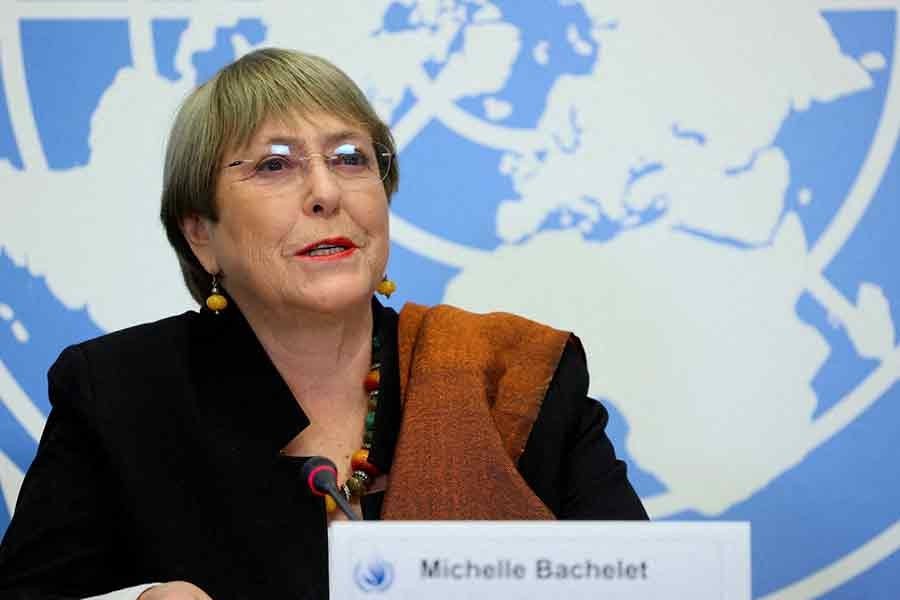UN Human Rights Commissioner Michelle Bachelet on Wednesday underscored the need for a national dialogue ahead of elections ‘to prevent grievances from building and erupting in social unrest’.
“There needs to be space for more dialogue among political parties and with a wide range of civil society actors to prevent grievances from building and erupting in social unrest,” she said while addressing a press briefing held to wrap up her four-day visit to Bangladesh.
“Bangladesh is also entering an election cycle, with general elections due next year, which tends to be a time of increased polarisation and tension” she added.
“The election period will be an important time for Bangladesh to maximize civic and political space, including freedom of expression, association and peaceful assembly of political activists, human rights defenders, opposition parties and journalists,” the former Chilean President said.
She prescribed to ensure that law enforcement forces have the necessary training to ‘manage protests without resorting to the excessive use of force’.
She also presented a dismal picture of human rights situation saying that successive UN human rights reports have documented a narrowing of civic space, increased surveillance, intimidation and reprisals often leading to self-censorship.
“Laws and policies over-regulating NGOs and broadly restricting the freedom of expression make it difficult – and sometimes risky – for them to function effectively.”
She mentioned that various UN human rights mechanisms – including the UN Committee Against Torture, have been raising concerns for several years about allegations of enforced disappearances, extrajudicial killing and torture, many of which have been attributed to the Rapid Action Battalion.
“ I raised my deep concern about these serious allegations with ministers and highlighted the need for an impartial, independent and transparent investigation into these allegations accompanied by security sector reform”
“There are continued, alarming allegations of both short-term and long-term enforced disappearances, and concerns about the lack of due process and judicial safeguards”
“Particularly given the long-standing frustrations at the lack of progress in investigations and other obstacles to justice, I encouraged the Government to create an independent, specialised mechanism that works closely with victims, families and civil society to investigate allegations of enforced disappearances and extrajudici
“My Office is ready to provide advice on how such a body could be designed in line with international standards.”
“Inviting the UN Working Group on Enforced Disappearances to visit Bangladesh would also show a commitment to decisively address this issue,” Ms Bachelet said.
She also felt that as the biggest contributor of uniformed personnel to UN peacekeeping missions, Bangladesh should ensure it has a robust system in place to ensure the careful human rights screening of security personnel.
The Human Rights Commissioner noted that democratic and civic space, as well as effective checks, balances and accountability, are essential as Bangladesh aims for the next levels of development.
“It also contributes to decreasing the risk of corruption and other hurdles to sustainable economic development and sound fiscal management.”
She also stressed the importance of protecting minority groups, such as Hindus and indigenous peoples from violence or land encroachments.
“We have submitted our recommendations for repeal and revision of certain provisions of the Act, with a view to ensuring their compliance with international human rights laws and standards and preventing arbitrary application or misuse” she informed.
On Rohingya issue she said the current situation across the border means that the conditions are not right for returns.
Talking about security situation inside the camp she said, “I am very worried about increasing anti-Rohingya
“I am particularly concerned that a pre-electoral context, combined with economic difficulties and uncertainties, will mean more hate speech against these vulnerable communities.”


